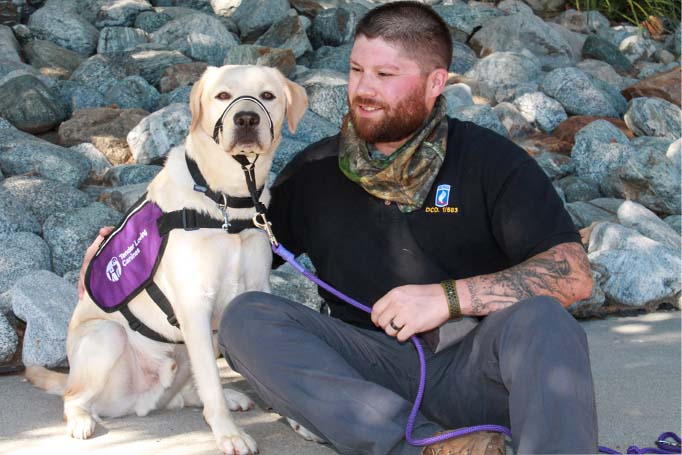Regulus Counseling for VETERANS
“I’m a true believer of teamwork, in the power of dreams, and in the absolute necessity of a support structure.”—Governor General Julie Payette, CC CMM COM CQ CD, Canadian Engineer, Scientist, and Former Astronaut
VETERANS Counseling
A core ideal among military service members is working in a team. Once they leave service, military Veterans lose the stability they once felt. Suddenly, they are alone, without support, no longer a part of a team, as they are left feeling lost, or without purpose or direction. Military service members left alone, tend to avoid interactions with anyone they are unfamiliar with, or have any connection. As a result, many service members self-isolate in various forms to avoid social interactions.
Many Veterans also actively avoid services, including the VA, and are especially avoidant of mental health services. For many, seeking mental health services is viewed as a sign of weakness. Military Veterans are hesitant of attending therapy, due to the socialization of military service, stigma, or self-isolation imposed by PTSD and other traumas.
Historically, one in four Americans who are not receiving mental health counseling services, are the individuals who would most benefit from mental health services. Translating that statistic to military services members, too many Veterans are underserved in regard to mental health counseling.
COMMON EMOTIONAL REGULATION DIFFICULTIES AMONG VETERANS AND MILITARY MEMBERS
- Military acculturation
- Marital stress
- Deployment stress
- Combat stress
- Military retirement
- Transition and adjustment to civilian life
- One.
22 Veterans and one Active-Duty service member will commit suicide each day. One life taken every 65 minutes. Stress load—the accumulation of stressors, including relationship break-ups, job difficulties, relationship difficulties with other members of the unit, and physical problems, including injury—is the major trigger. Where physical limitations—chronic pain and physical disability—may be the factors which precipitate suicidality among older soldiers and those of higher rank, for younger Active-Duty members who have experienced injury, may be placed on limited duty, results in depression, believing he or she can no longer perform the job, contributing to loss of identity, further exacerbating the depression.
A difficulty the military and Veteran community faces is trauma, resulting from combat or other duty-related issues. PTSD, a mental health condition as a result of exposure to an event or series of events during which a person is exposed to stressors beyond their ability to process and manage their overwhelming feelings, has been most commonly associated with the military, and other professions in which individuals are placed at risk of serious injury, or loss of life. Military members who have been exposed to traumatic events can flash back to their time in the war zone, witnessing their comrades killed, or severely wounded.
One event can drastically change a person’s life, particularly impactful among the military community. On April 5, 2005, during Operation Iraqi Freedom, an Army combat medic and his squad were hit with a large improvised explosive device (IED), as he suffered a concussion, and three Iraqis were severely injured; one Iraqi with a large wound, did not survive. This event, these injuries, the person whom the medic wanted to save but couldn’t, would remain emblazoned in the combat medic’s mind, ultimately causing PTSD.
Stress load, chronic pain, depression, and trauma are all factors placing Veterans and military service members in imminent danger. The inability to cope can lead to self-medication (alcohol, drug use, or engaging in other risky behaviors) to ease the pain or escape, as well as self-isolation from friends and family, resulting in the development of addiction and the degradation of family and support systems, further deteriorating their overall health. It is imperative for this community to have an outlet and a support system to discover healthy, constructive coping skills for these challenges.
If you are of immediate danger or hurting yourself, or attempting suicide, call 911 or your local emergency room number immediately.
If you think you may hurt yourself, or attempt suicide, call the Veterans Crisis Line: 1-800-273-TALK (1-800-273-8255), and press “1.”
If you have a loved one who is in danger of suicide, or has made a suicide attempt, ensure they are not alone. Call 911 or your local emergency room number immediately. If you believe it is safe to do so, take the person to the nearest emergency room.
Regulus Counseling seeks to assist Veterans and Active-Duty service members by working with them as a team, as their “battle buddy,” as their support system. It is important for this community to know that seeking mental health services is not a sign of weakness, but rather, a sign of strength. Our clinical director is a military Veteran, where his message to all Veterans is: showing up for the first counseling session is the hardest part of attending counseling. After that point, counseling becomes easier, walking one step at a time. Our clinical director recognizes that “Life is a team sport,” where he will work alongside the Veteran or active service member to address their unique needs, including those who are on their journey into healing from PTSD. We utilize a confidential, secure, HIPAA-compliant tele-therapy platform, where our clients can be confident that confidentiality is of highest priority. We hope to explore the terrain with you, towards healing and rediscovery.

